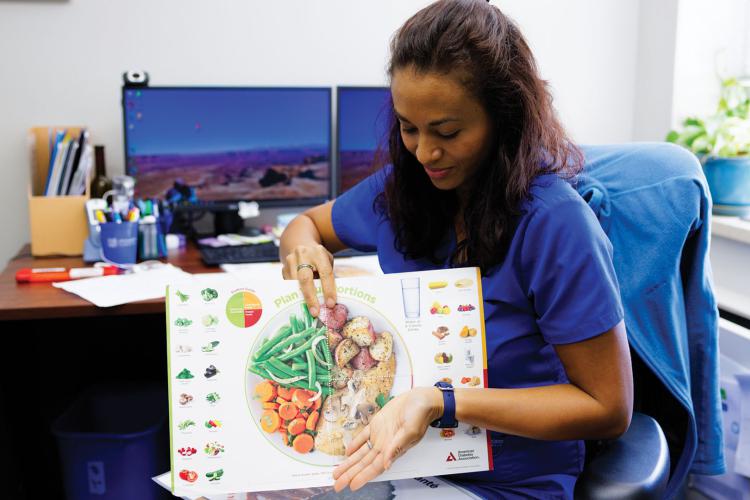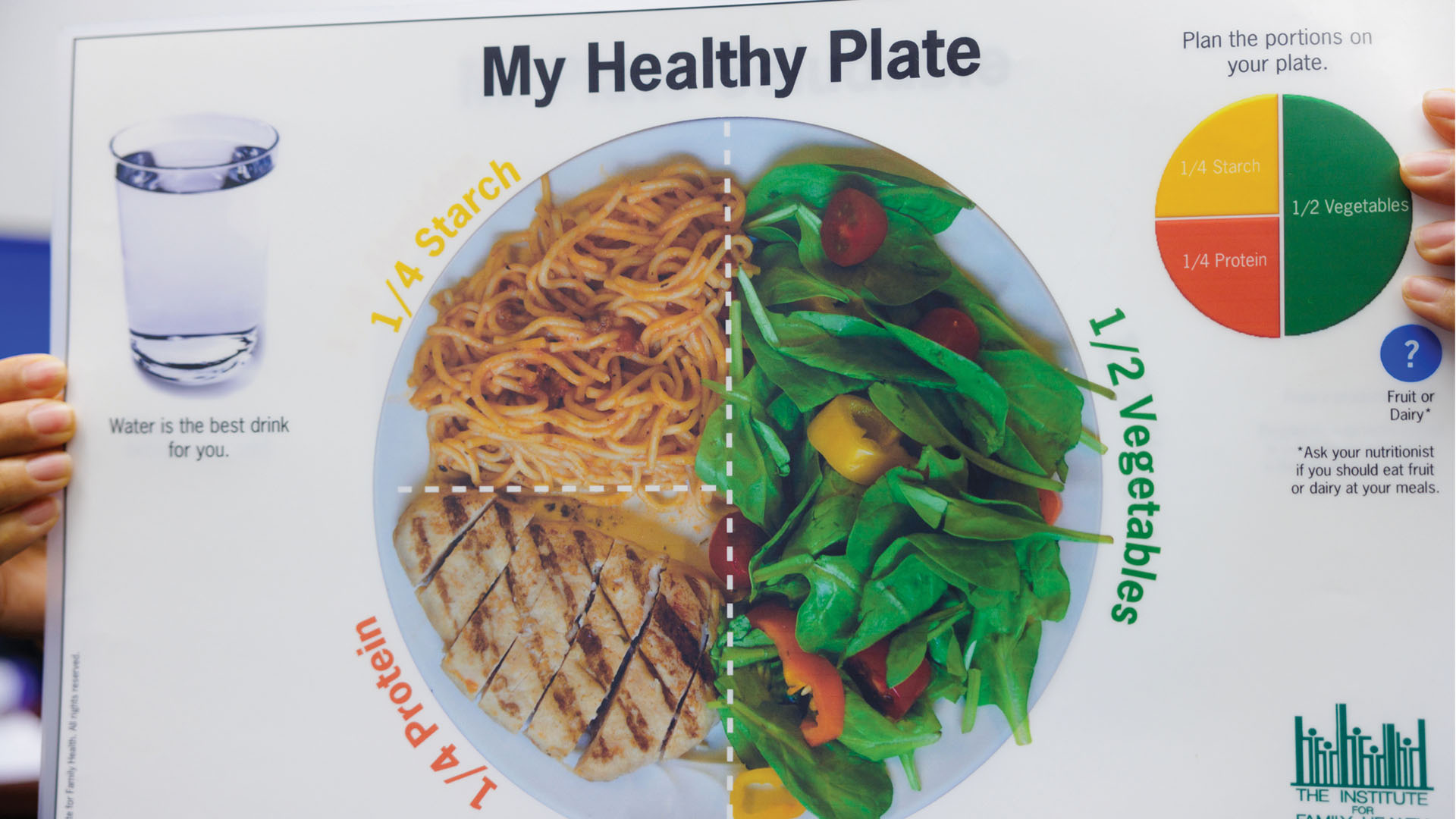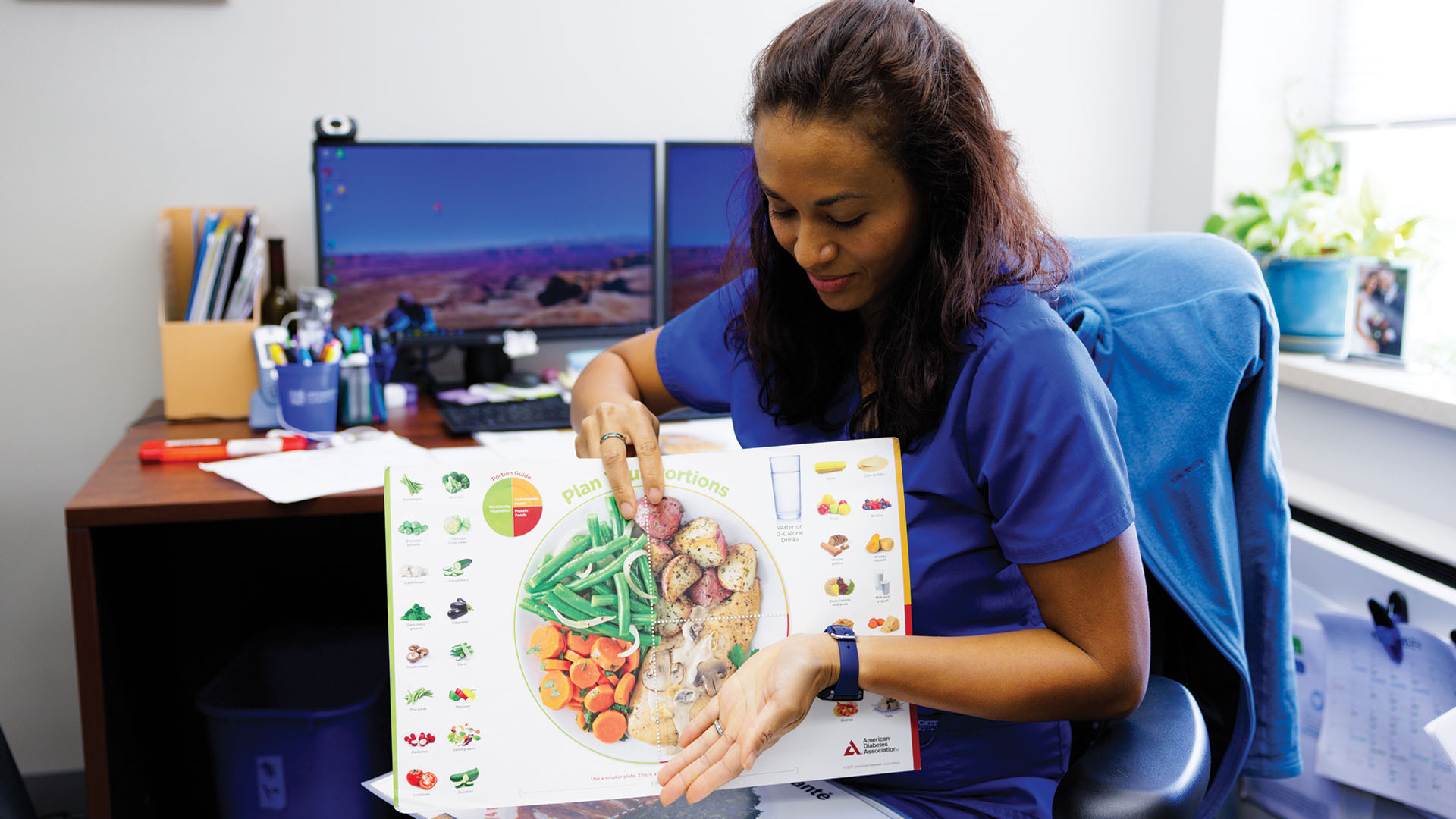
Season 5: Episode 2 Show Notes
A common misconception about being diagnosed with diabetes is the belief that a person can no longer live a normal life, with the main concern being the inability to eat familiar foods. This can be challenging since food is a significant part of a person's culture. It's important to understand that a diabetes diagnosis doesn't mean you have to give up the foods you love, but it does require making adjustments to ensure that your blood sugar and A1C levels are well-managed.
Brian Maschino and Tatiyana Giddings met with inpatient diabetes educators Val Smyre, MSN, RN, ONC, RN Certified Diabetes Educator, and Bea Pandit, MSN, RN, CMSRN, RN Certified Diabetes Educator, to better understand what a diabetes diagnosis is and how patients can still lead a healthy and fulfilling life after their diagnosis. If this episode on diabetes education speaks to you, speak to us: podcast@jpshealth.org.


What is Diabetes?
Diabetes is a health condition that can affect people of all ages. It occurs when the insulin in your body isn't produced enough to regulate blood sugar. When blood sugar (glucose) isn't regulated, and the insulin isn't functioning properly, it can lead to excess sugar in the blood, resulting in extremely high levels of sugar in a person's body.
Insulin
Insulin is a hormone that allows a person’s body to use the sugar from carbohydrates for energy. When insulin isn’t regulating properly, the sugar stays in the blood, leading to high blood sugar levels.
Prediabetes
Pre-diabetes occurs when blood sugar levels are elevated but not high enough to be classified as diabetes.
Type 1 Diabetes
Type 1 diabetes typically appears during childhood or adolescence but can develop in adulthood. It occurs when the pancreas produces little to no insulin.
Type 2 Diabetes
Type 2 diabetes is becoming more common in children despite usually affecting older adults. It is more prevalent than type 1 diabetes and happens when the pancreas doesn't produce enough insulin, or the cells don't respond well to insulin and take in less sugar.
A1C Test
An A1C test measures the amount of sugar in a person’s blood over the course of a few months. According to the American Diabetes Association, a normal A1C is less than 5.7 percent, pre-diabetes range is between 5.7 and less than 6.5 percent, and diabetes is an A1C level of 6.5 percent or higher.
This visual shows the characteristics of blood with elevated glucose levels. The left tube represents normal blood flow (A1C less than 5.7 percent), the middle tube illustrates pre-diabetes (A1C between 5.7 and less than 6.5 percent), and the right tube demonstrates the appearance of blood in individuals with diabetes (A1C level of 6.5 percent or higher), which resembles a syrup-like consistency.
What can make blood sugars rise?
- Food
- Stress
- If the body isn’t producing enough insulin
- Certain Medications
- Illness or Infection
What are the symptoms of diabetes?
- Frequent Urination
- Dehydration
- Weight Loss
- Feeling Tired or Weak
- Blurry vision
- Feeling irritable
- Nausea
How can you manage your diabetes?
- Check your blood sugar and document it.
- Cut back on food portion size.
- Exercise, even if it means parking further away from the grocery store. Aim for about 150 minutes a week. (five minutes, every hour in a 10-minute day)
Connect to Primary Care at JPS Health Network
- Diamond Hill Health Center
- Family Health Center
- Gertrude Tarpley - Watauga Health
- Grapevine-Colleyville Pediatric Clinic
- Health Center for Women
- JPS Health Connect Clinic
- Magnolia Health Center
- Mansfield Pediatric Clinic
- Medical Home Northeast Tarrant
- Medical Home Southeast Tarrant
- Northwest Health Center for Women
- Northwest Azle-Iona Reed Health Center
- Pediatric Clinic
- Polytechnic Health Center
- South Campus Health Center
- Stop Six- Walter B. Barbour Health Center
- Viola Pitts-Como Health Center
To connect to care or find out more about our locations, visit jpshealthnet.org/locations.
The JPS Podcast Credits:
The JPS Podcast is hosted by: Brian Maschino and Tatiyana Giddings
Executive Producer: Jessica Virnoche
Producers: Brian Maschino, Tatiyana Giddings, and Gaspar Hinojosa
Audio Mixing and Recording: Gaspar Hinojosa
Editing: Brian Maschino
